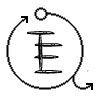Search the Community
Showing results for tags 'Athiesm'.
-

Bieber Bath or As Long As God Has Your Back....
Jiminy Vishnu posted a topic in Atheism and Religion
Many Celebrities have "come to Jesus" moments after public controversy. Michael Vick "found" Jesus after his dog-fighting passion became public. Paris Hilton "found God" after a stint in jail for a driving offense. Lindsey Lohan became "a very spiritual person" reading the Bible in rehab. Tiger Woods, when caught in his marital infidelity pledged to rededicate himself to Buddhism. Mike Tyson embraced Islam in prison. Tom Cruise probably had an audit or two when he "acted out" on Oprah. And the latest name added to this curious list is the Belieber himself. Justin Bielber, after months of bad press, arrests, drug confiscation, recently got baptized in a bath tub in NYC . Carl Lentz the“celebrity pastor” of the Hillsong New York City evangelical church, has helped the boy wonder see the light and come back to the Lord after his public image took a dive.I could easily just focus on the snark and PR coup his agents and handlers are no doubt arranging as they try to salvage this kid for the money maker he has been, and needs to be for years to come. But I'm sad for the fella. He comes from a broken home, He doesn't appear to have any positive adult or peer role models and real friends. The last thing in the world this kid needs is religion. Its a band-aid on a compound fracture. Does anybody remember Mark Sanford, former governor of South Carolina, who was caught using taxpayer money to support his affair with an Argentinian mistress? In his stump speech during his run for congress in 2013, and in his victory speech included the line, “I just want to acknowledge a God not just of second chances, but of third, fourth, fifth, sixth, seventh and eighth chances.”How insulting is this to the real people in these celebrities lives? Let alone their fans.And what exactly is the underline message of "Only God can judge me?" It seems to nullify any inquiry or attempt for the individual to recieve feedback. As memory serves I cannot think of a single celebrity who's used athiesm as a salve for the public's scrutiny of their personal behavior.- 1 reply
-
- Athiesm
- Justin Beiber
-
(and 1 more)
Tagged with:
-
Hi all, I hope this is the appropriate place to post this. I self-published a memoir/academic piece that is manifesto-ish. It chronicles the change from growing up in an religiously abusive home to how I dropped that baggage. I'm working up the courage to write some more and be even more honest about how abusive my home life was and how therapy, empiricism and FDR have changed my life. Here's a link:http://www.amazon.com/The-Feral-Ache-Science-Decided-ebook/dp/B00ENSLZAY/ref=sr_1_1?ie=UTF8&qid=1396792192&sr=8-1&keywords=the+feral+ache I'd love to have your valuable feedback.
-
One of my favorite things to do a long time ago was find quick ways to prove the non-existence of a god using traits described to me by other people. It would frustrate them, but if you're going to believe in an existing God then he had better not have self-contradictory properties. Well now that I'm Christian, I'll have a go at attempting to define traits which do not disqualify themselves from existence. If no one can point out reason to believe in non-existence, would that not mean the question is 'up in the air' or 'on the table' until proven or disproven one way or the other? I'm not saying we should treat an unproven question as though it is true, I'm saying that we should treat an unproven question as though it could be true, at least theoretically, given assumption of specific non-contradictory traits. Before you ask what reason there is for entering these assumptions (basis in reality, evidence, fact, research, etc), or what reason there is for evaluating a hypothetical being which emerges from the traits assumed, let me explain. Let's say someone designs a new invention called 'the printing press'. Now, at this point in time no printing press can be seen, examined, or used, because there are none anywhere. The only evidence that the printing press works as the inventor claims is a mechanical drawing he made on a large piece of paper. All we could do would be to enter the assumption that, with all parts shaped and put together, this machine would do what we think it would do. And we would also have to evaluate this hypothetical device using its assumed traits before building it, or else we cannot design it and then we cannot build from a working design. To do anything otherwise equals abandoning the pursuit of building the printing press. Now let's ask, why even bother evaluating the possibility of God existing? We have many books claiming to be messages from God. Many people have near-death and OOB experiences, some have astral projection experiences. Some people think dreams are from a different level of reality. Some people claim memories of past lives. Some people claim to have experienced miracles. If any one of these things happens to a person, why should that person not then consider the possibility of God? Should that person really just find the first sentence they don't understand and snap the book shut and say they've disproven the whole thing? I mean, everyone does what they want to. It just seems to me that some people give very little consideration to ideas that are not instantly self-terminating (possibly valid ideas) because they don't like that particular subject, but when talking about other subjects, a lot of consideration is expected. Or perhaps it's that one subject is already delcared moot, no matter what new arguments are brought forth? Instead of the common idea of omniscience, let's say that "God can find out anything about anything in His universe." This trait also places the information elsewhere, as an accessible medium, instead of requiring it to all be stuffed into one mind and all be conciously thought of simultaneously forever. This also draws closer the claim that "we were created in His image." Instead of the common idea of omnipotence, let's say that "God can do anything possible except sin." 'anything possible' rules out logically impossible feats while preserving the infinite range of potential valid actions. We know that God hates hypocricy and therefore would not practice hypocricy, thus God who tells us to not sin should also not be sinning. Instead of the common idea of omnipresense, let's say that "God can go to any place and time in His universe, in as many different visits as He wants." This is carefully worded to allow God to be in more place than one, simultaneously, yet still be logically possible. Some people like to define God as invulnerable to logical attack, or existing where A can equal non-A, or existing with an inpenetrable barrier between Him and us, in order to evade good arguments against their claimed traits. Defining anything that way makes it self-implode, so we have to add the trait "God exists within the boundaries of reality," and the trait "God is at least one unit of something," and the trait "God can reach out and intervene here." #1. God can find out anything about anything in His universe. #2. God can do anything possible except sin. #3. God can go to any place and time in His universe, in as many different visits as He wants. #4. God exists within the boundaries of reality. #5. God is at least one unit of something. #6. God can reach out and intervene here [no barrier preventing it]. Are any of these traits contradicting each other or themselves? Is there a trait that must be added or else the whole thing falls apart? Is there a trait here that must be removed or else the whole thing falls apart? If you can show me something wrong here I'd try to fix it or abandon whatever trait needs to be abandoned. Disclaimer: Keep in mind that these are just assumed traits for a hypothetically existing God, or for a God whose existence is still possible or 'on the table' based on described traits. This is not an attempt to prove the existence of God - only an attempt to put the possibility of His existence back on the table.
-
The following post is one I wrote in response to a class-blog for the Introduction to Philosophy course I'm taking. I didn't believe then nor do I believe now that this class would actually teach me much next to anything about philosophy, besides some of the basics we don't mully over here like defining words like premise and conclusions. What this class has done for me those is help me practice reasoning out the arguments for my beliefs, because unlike this environment, at the college I attend in the deep south/bible belt of the United States stereotypically composed of conservative white Christians and liberal black Christians, I'm at odds with just about everybody which has made me a stronger philosopher for it. But back to my repost below. My class was recently discussing the ontological argument for the existence of god in class and had to write a couple of posts on our class forums about it. This is my most recent post and I just wanted to share it with you all here, so that I may actually hear some type of rhetorical feedback in my lines of reasoning and how I go about structuring my thoughts, something I surely won't receive from my classmates or professor. I hope you enjoy. And just before you begin, for those of you who are unfamiliar with the ontological argument it goes like this: 1. If god is a conceivable/possible being, than god exists. 2. God is a conceivable/possible being. 3. Therefore, god exists. _________________________ NOTE: This post isn't necessarily in response to anyone else's post specifically, but I hope all of you who come across this will take care and read what I have to say. In doing so I believe you would be doing yourself and the world a considerable favor. I come to odds with the first premise in the following way. In the ontological argument the gap between conceivability and confirmed, irrefutable existence is bridged only by the definition of god we work with. I find the attempt at coming up with a self contained logical proof for the existence of god annoying personally and frustrating for those of us philosophers who rely on actual evidence on which we can base our arguments on to come up with conclusions. Like the KnowNo argument we discussed in class, we can just come up with any random word, a Foo-bar for example, and say that a Foo-bar necessarily exists. I can also say that there is no means of testing the actual existence of a Foo-bar and that you should just have faith, because that sounds like a really sweet thing to do, and if you don't agree with me or succumb to my emotional manipulations to just accept Foo-bar into your life I'm going to tell you that I'll just physically communicate with Foo-bar to warm your bitter, cold heart, so that Foo-bar can fill you full of it's inconceivably benevolent glory. You see, this isn't a case for the existence or nonexistence of Foo-bar at all. The assigning of properties to something can by no means validate the existence of that thing in reality. I also am frustrated with people who accept the second premise because of the following reason. In class we in no manner addressed this point of what it means for something to actually be conceivable or possible. We did point out how contradictory objects cannot logically exist, nor can your possibly conceive of them. Take the round-square for example. No matter how hard you think or how much you want to believe that you can picture an object in your mind that is both round and square at the same time is impossible, because by definition, the properties of a round-square being an object that is "a plane figure with four equal straight sides and four right angles", but also "a round plane figure whose boundary (the circumference) consists of points equidistant from a fixed point (the center)" are at odd with each other in such an irrefutable and fundamental way. I make the claim that the same goes for god. God is defined as being both all-powerful and all-knowing. If you want to test the possible (in)conceivability of something you should try to think about what both of these things mean when applied together onto the same context, 'god'. If god is all-powerful that means that god can do/change anything past, present, or future to god's own liking. But if god is already all-knowing, knowing everything as it is in reality, past, present, or future, god would thereby be incapable of using god's powers to change anything, because in doing so god would be invaliding gods own omniscience. This is a fundamental contradiction in the definition of god and there is no avoiding it. People from this point in the argument often say that god exists in a realm that's outside of time and space lah-dee-dah-dee-dah, but this claim is equally invalid and contradictory, because that is if god is to have any knowledge of or power over what exists within ours or any other conceivable realm that exudes the properties of either time or space (good luck theorizing one with them though) god would have to have some interaction with (coming into to) that particular realm of time and space in order to influence in it with his magic powers that fly in the face of the distinct laws of a nature of that realm. You can have your emotional reactions all you want and say you still believe that god exists, because you have faith. I'm not going to tell you can't, and I won't take any measures what so ever if you do. But just know that in this instance, as you use the word "faith" you are rejecting reason and evidence as the criteria for what you believe. If that's something you're happy with doing then by all means have yourself a merry time, but I urge of you NOT to waste your time with the entertaining of scientific and philosophical theories, because you are rejecting the fundamental criteria of those practices when you use the worst F-word of all. Having intellectual integrity is a very difficult virtue to adopt, and I really do deeply sympathize with those people who are experiencing difficulty making the transition. I made it myself not along ago. It was grueling, frustrating, and exhausting, but it was also worth it. I learned that having emotional dependency to conclusions is not an effective way at all to live your life as a philosopher, because that will keep you from responding to new evidence that make go against as claim of yours you've made in the past, and now feel embarrassed to give up. If anything at all to have an emotional dependency on is the methodology by which you can judge claims and the arguments associated with them. If there was brand new irrefutable evidence for the existence of god tomorrow, you'd bet I'd be a theist in a second, because I'm not attached to the idea of being an atheist. But also note, that if there was to be such an occurrence, you can guarantee that this evidence would be empirical and measurable, and not anything else. Reason and evidence are the keystones to philosophy for certain, and I also believe that they are just as foundation to someone who wants to live a moral and virtuous life and leave a positive influence on this world by learning about and practicing real freedom, not the pseudo-freedom the systems of pseudo-moral instruction and obligation would prefer you believe, in your daily life.
- 3 replies
-
- ontological
- argument
-
(and 3 more)
Tagged with:


